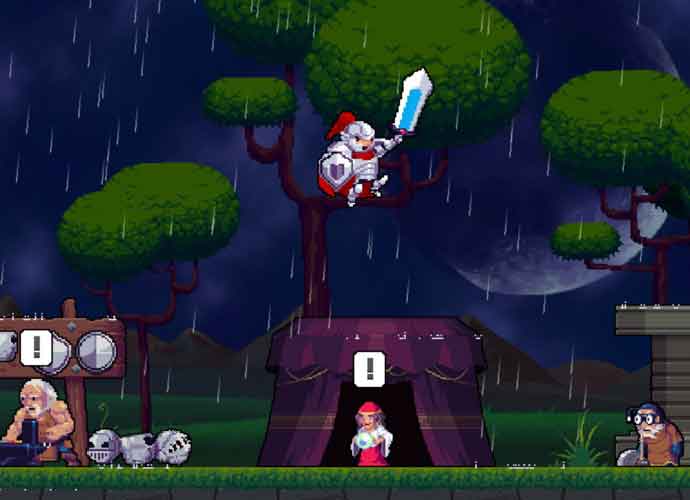

'Rogue Legacy' Game Review: For Advanced Gamers
When dying continuously in a video game, one often experiences annoyance, anger, and a strong need to give up in order to retain the remaining scraps of their sanity. In recent years, however, the need to “get good” had been on the rise, concluding that the player is the one to blame for failing, regardless of the difficulty of the task. This mentality has aided the creation of games such as Dark Souls, and indie games like, as you could probably tell from the title, Rogue Legacy.
Starting off with one knight class, you are forced to go through a dungeon and, frankly, die an obscene amount of times. Each time you die, you will choose one of 3 successors with a variety of helpful, difficult, and strange traits (such as color blindness and gigantism). This goes on until you beat the game or get bored and stop playing. As you gather gold you can use it to create permanent upgrades such as unlocking new classes, abilities, and equipment.
As you navigate the castle, you are treated to a Pokemon Mystery Dungeon-like experience, the dungeon’s layout randomized each time you enter, meaning each run of the castle is entirely unique. However, the castle is split into sections as to wean you into your playthrough without outright destroying you; more difficult enemies can be found in further areas and the proximities of these areas often vary. While the music is barely memorable, it is the pixelated/cartoony graphics and responsive gameplay that make the experience. As a 2-D, Castlevania-styled platformer beat ’em up, you’ll pick up quickly on how the game works and what you’re supposed to do. If you don’t pick up on the playstyle, fear not, you’ll learn through trial and error, or rather you’ll have to.
Remember how I was talking about Dark Souls before? Well, I’m serious. If you don’t buy a controller for this game it’s unplayable, plain and simple. The difficulty this time is that this computer game doesn’t work well on the computer, and other than upgrades that generally aren’t that helpful there’s nothing that can aid you in your quest. Additionally, once you’re in, you’re invested; you can’t exit and come back later without sacrificing your progress. There is no way to save except through paying an NPC, later on, to keep the castle the same, but even then it’s not much of a benefit should you screw up instantly, an event that occurs quite often. Your progress is expendable, whether you like it or not.
The sheer brutality of damage one mistake gives you in this game would be unforgivable if the graphical direction wasn’t so crystal clear. It’s fun, but it’s not entirely worth it considering how much of the game is sealed away due to its difficulty. Rogue Legacy should be reserved for advanced gamers and/or those who have a controller for their PC. If you’re down for the challenge you’re more than welcome to try, yet most who play the game will have a legacy no larger than wasted hours and a few missing dollars in their wallet.
In this behind-the-scenes photo from the Mission: Impossible—The Final Reckoning set, Tom Cruise went shirtless…
According to a former White House official for Bush, the US federal government has secretly…
New data revealed that 58 wallets made more than $10 million apiece on President Donald…
After former Vice President Kamala Harris and her husband, Doug Emhoff, attended this year's Met…
Phoebe Gates, daughter of Bill Gates, and Sir Paul McCartney's grandson, Arthur Donald, made a…
Singer Lana Del Rey posted a photo on her Instagram this week that gave fans…